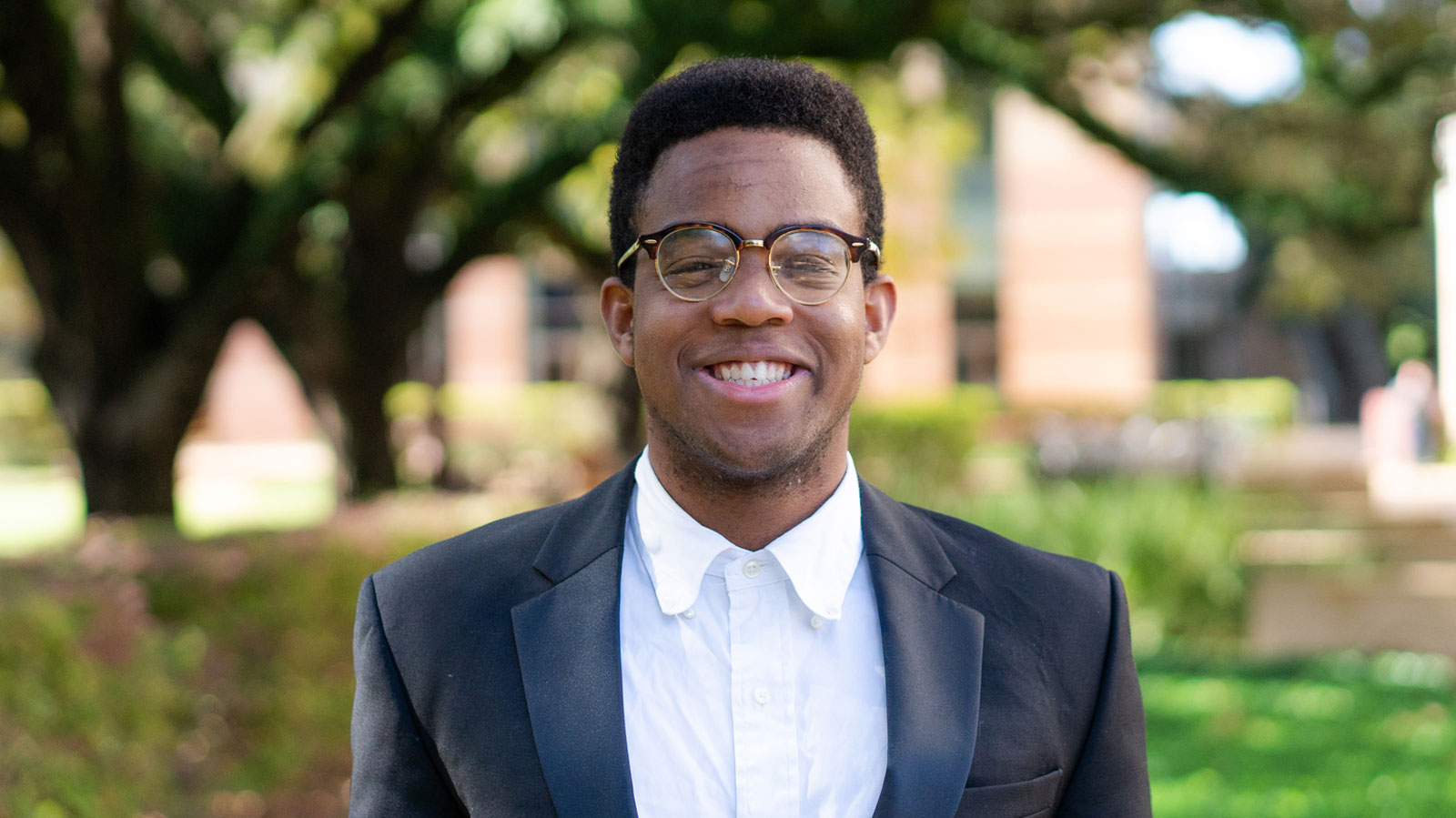“I’d planned to be a doctor since childhood,” said Rice University mechanical engineering alumnus Chidera Onyeagoro ’21. “Then I hit GenChem about the same time I was realized I did not want to keep going to school after graduation. I liked to learn through creating more than through studying. The really great thing about Rice? It’s a safe place to falter, catch your breath after a crisis, and change direction.”
Conversations with other Rice engineers helped Onyeagoro realize his passion for creation and his original interest in healthcare were a good fit for the medical technology industry, but the shock of discarding a long-term career goal made him cautious about choosing another narrow path.
“Mechanical Engineering seemed to have the most flexibility. Although I really wanted to work on medical devices, the MECH training could also be applied to aerospace, oil and gas, agriculture, and other industries. One day, I’d like to start my own company and MECH seemed to support that as well,” he said.
His communication skills helped Onyeagoro navigate through the change in majors as well as a variety of internships. Whether he was focused on projects with heart, brain, or knee specialists or diving into construction and infrastructure work, he continued following the principles that guide all engineers.
“Every project begins with defining the problem,” said Onyeagoro. “Ask questions to understand and clarify the need. Discover the challenges to a successful solution and discern what is available in terms of resources. One of my GE Healthcare rotations led me to the X-ray group; nothing I learned at Rice involved working with X-rays, but the structural way of approaching and solving problems is the same.
“Besides rotating through teams focused on areas like MRI, ultrasound, or infant care, the GE Edison Engineers can also transition between hardware, electrical, and software tracks – all requiring clear communication skills in addition to technical abilities. In fact, the communication skills will be paramount to the product management track that I’ve been considering for my final rotation.”
He is so attuned to identifying need that his subconscious began nagging him to improve traffic to minority-owned businesses during the pandemic. He discovered more buyers who wanted to support Black-owned and other underrepresented small businesses but had a hard time identifying them without direct referrals from friends. So Onyeagoro and one of his Rice Computer Science friends co-founded Cornr.shop, a social site to connect shoppers with these types of vendors.
“Rather than provide another shopping site that would carve out a portion of the sales to cover transaction costs, Cornr.shop filters traffic directly to the items on the vendors’ websites. It began as a side project for us, but it is one we remain excited about. Cornr.shop allowed us to build a connection, a kind of lifeline to help minority vendors stay in business,” said Onyeagoro.
Launching the project pushed Onyeagoro outside his comfort zone. Building the platform was only part of the solution; he also had to identify vendors and potential shoppers and convince both sides to use the new site. He said although it is human nature to hold back, stretching himself allowed him to find new strengths.
“I didn’t want to be an engineer who was great at the technical side but couldn’t explain how the product worked or why the feature was an improvement; I knew the only way to get better was to practice. That means I’ve had lots of awkward conversations,” he said with a grin.
“I taught myself to talk to everyone I meet – from cashiers to homeless people. Communication is an on-going process; it doesn’t stop with a simple ‘How’s your day going?’ The person on the other side of the conversation might not be adept at getting their point across, so you find ways to put them at ease or ask the question from a different perspective.”
Onyeagoro is also a fan of simplicity. From his first course – ENGI 120 – to his senior design capstone, his focus on the team’s final presentation was how to turn a semester-long or year-long project into six or seven slides. Their presentations had to be easy enough for a broad audience to follow while supplying engineering details that demonstrated how the prototype worked.
“Since I’m more of a visual learner, I lean on block diagrams and other types of illustrations –but even those must be easy to grasp. We all had parts to play during the presentation and mine was going over the slides again and again, suggesting ways to clarify or make the point as simply as possible,” he said.
His own experience also taught Onyeagoro that simplifying a message does not always make it easier to bear. These days, he thinks about how his words will impact others almost as much as he concentrates on the actual message. Change does not come easy, but it can come with unexpected benefits.
“Stepping back from being a doctor was tough,” he said. “But I am so grateful I did step back. I am really happy with where I am right now and the path ahead. Rice gives you so many spaces to explore, and people support you no matter what. You are surrounded by peers who are also making hard life decisions and changing directions. That gives you more freedom to switch out if something just isn’t working for you.
“Stop worrying about letting others – and yourself – down. Yes, expectations may be high, but you may be pressuring yourself to excel in an area that no longer fits. Talk it out with people you trust, and then push beyond your comfort zone. That is how you will find your best self.”
This story is part of a series for our Activate Engineering Communication program.

